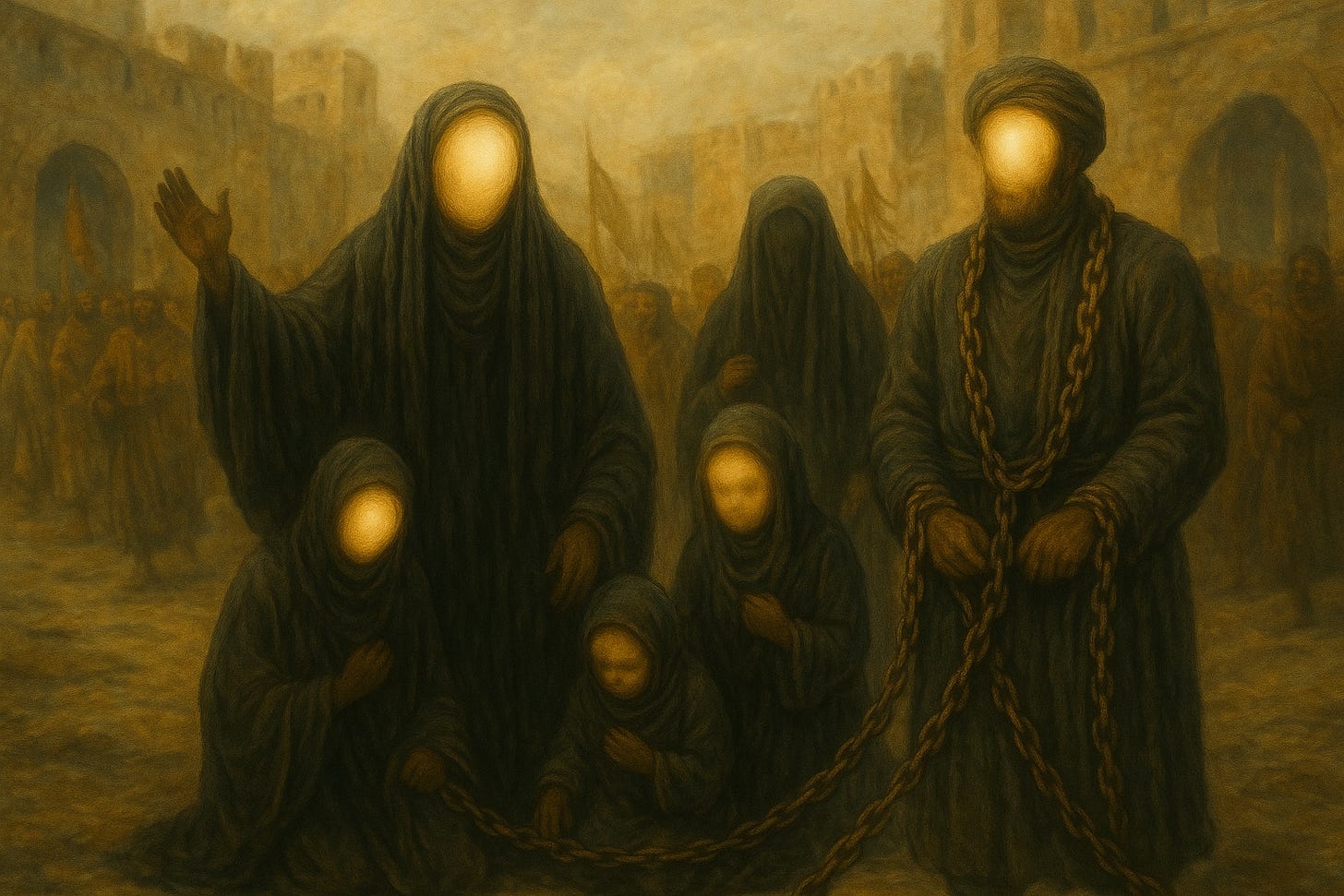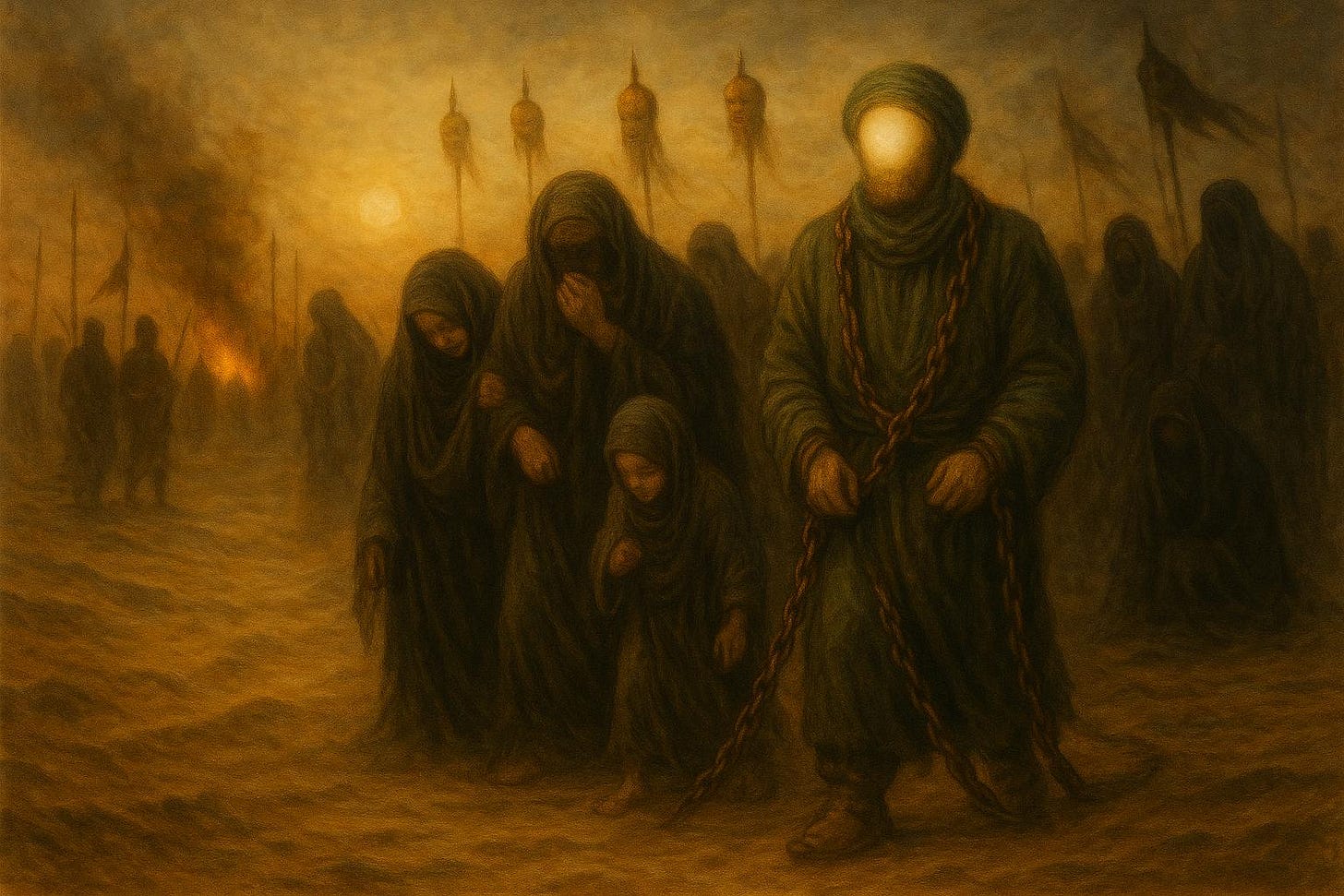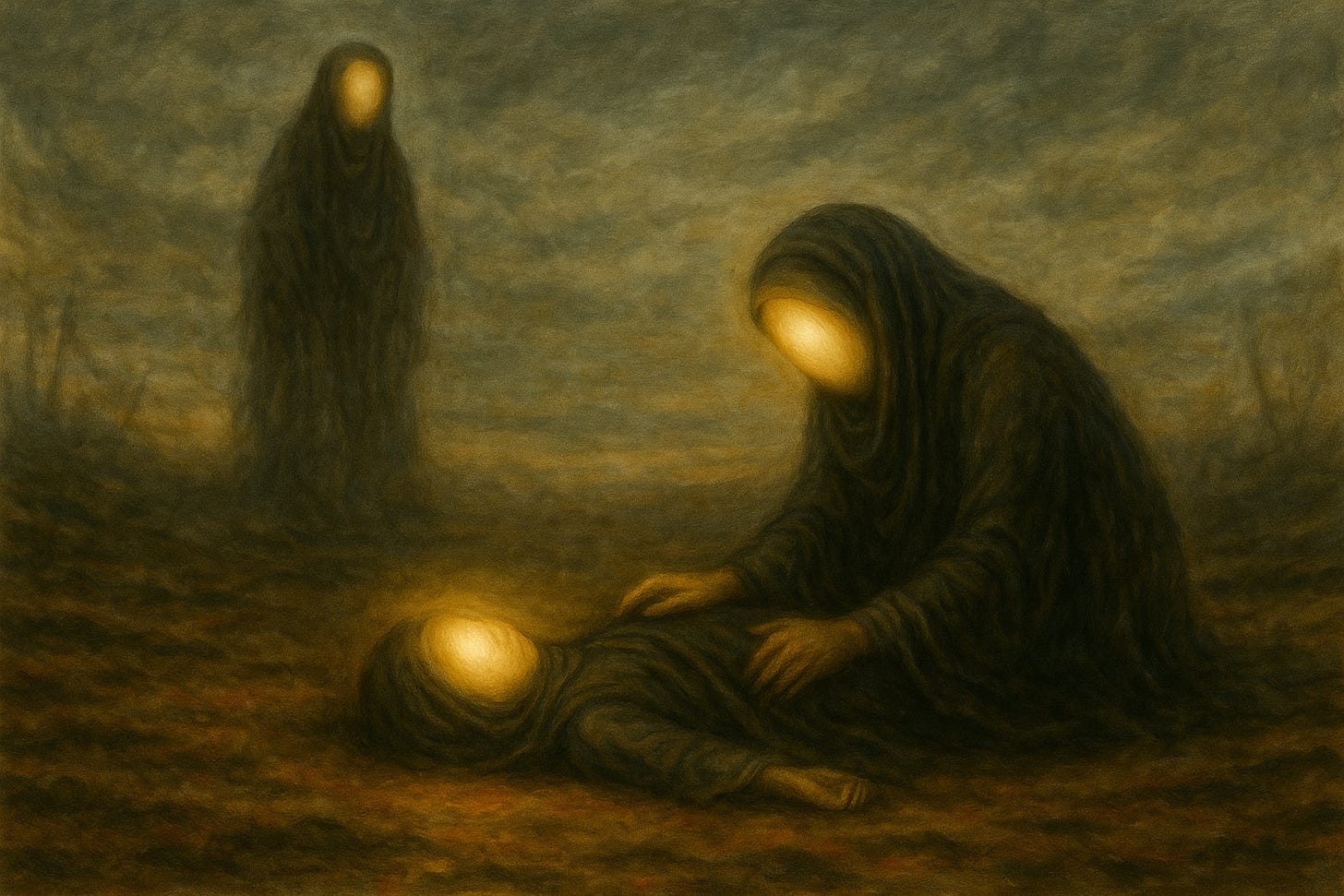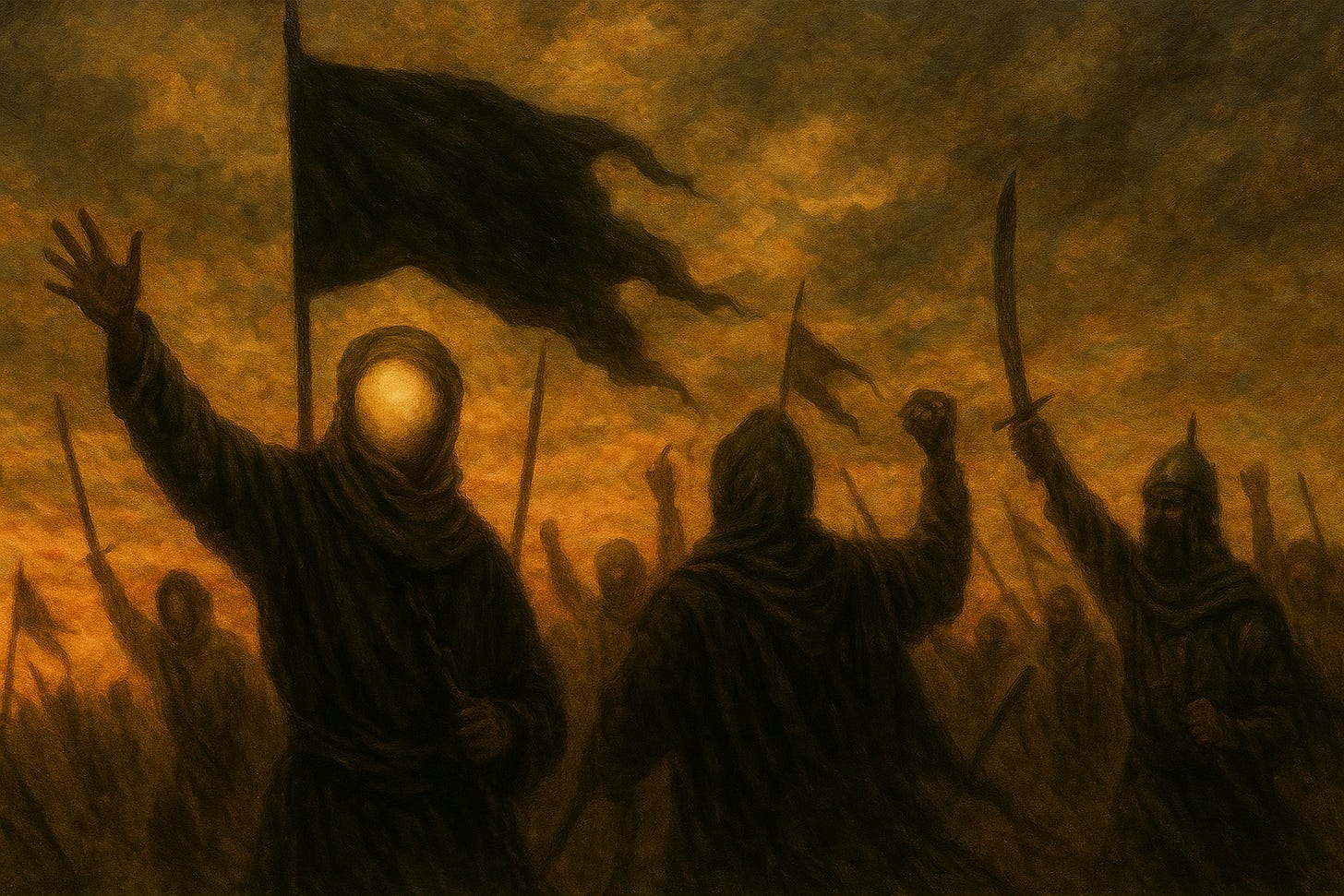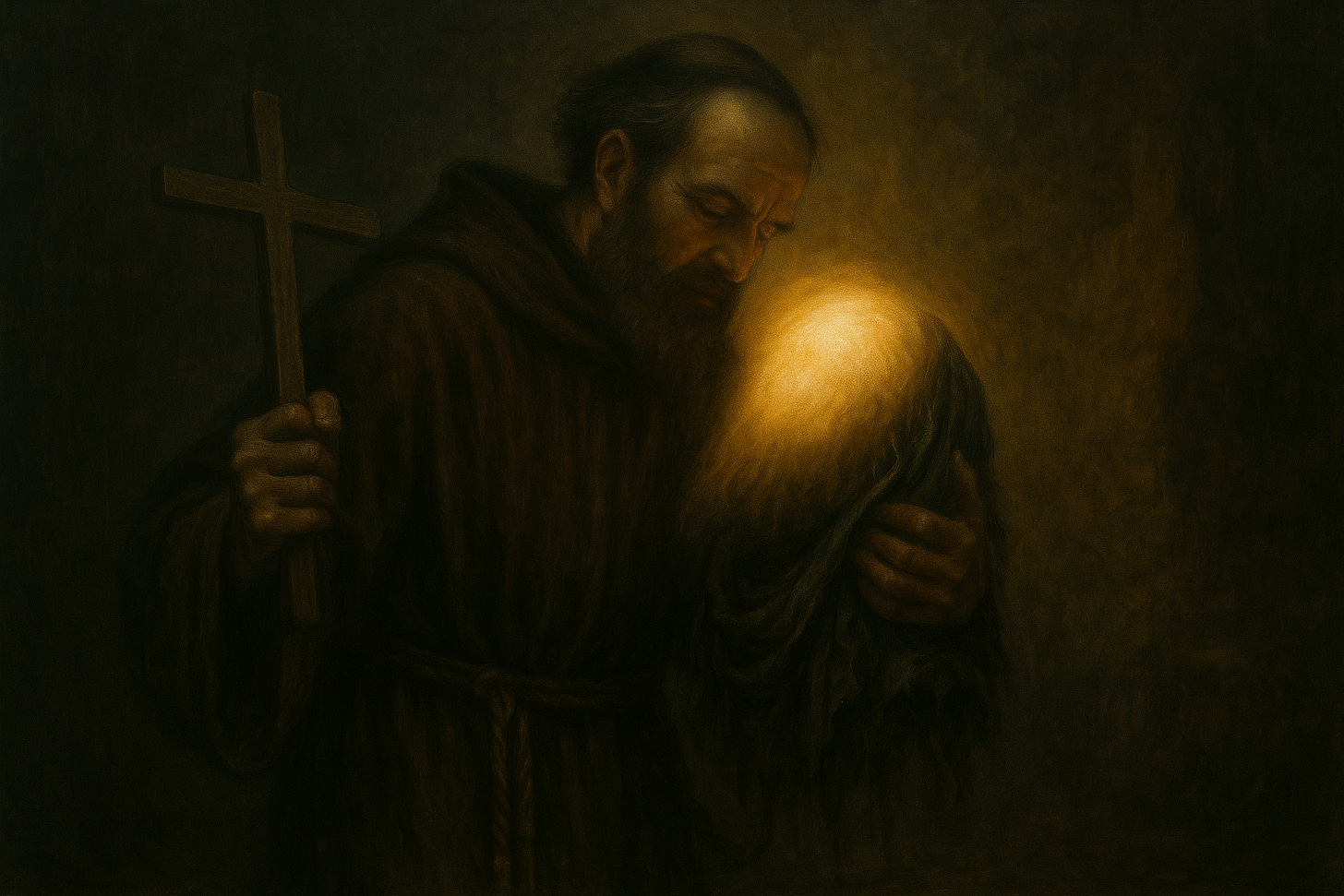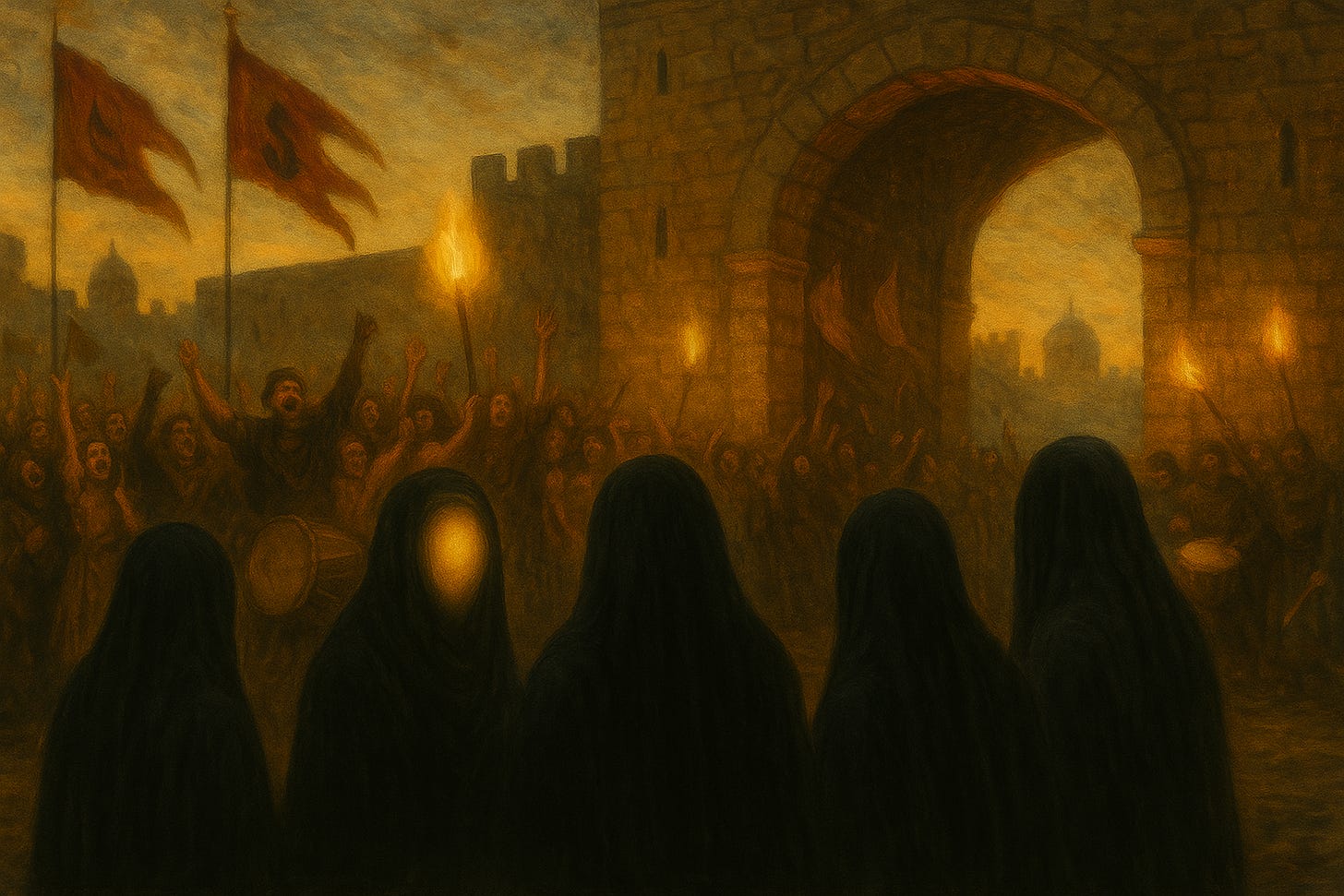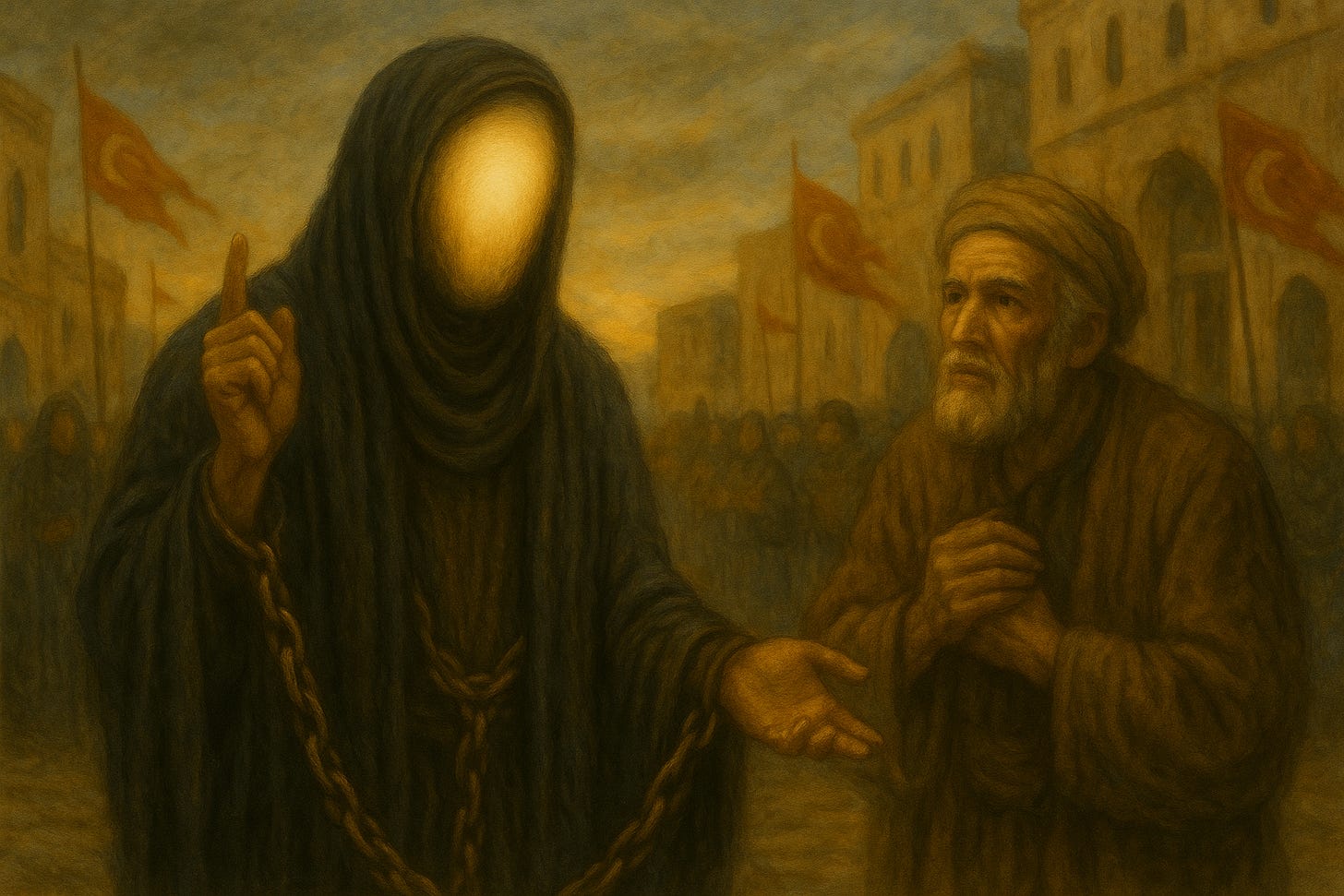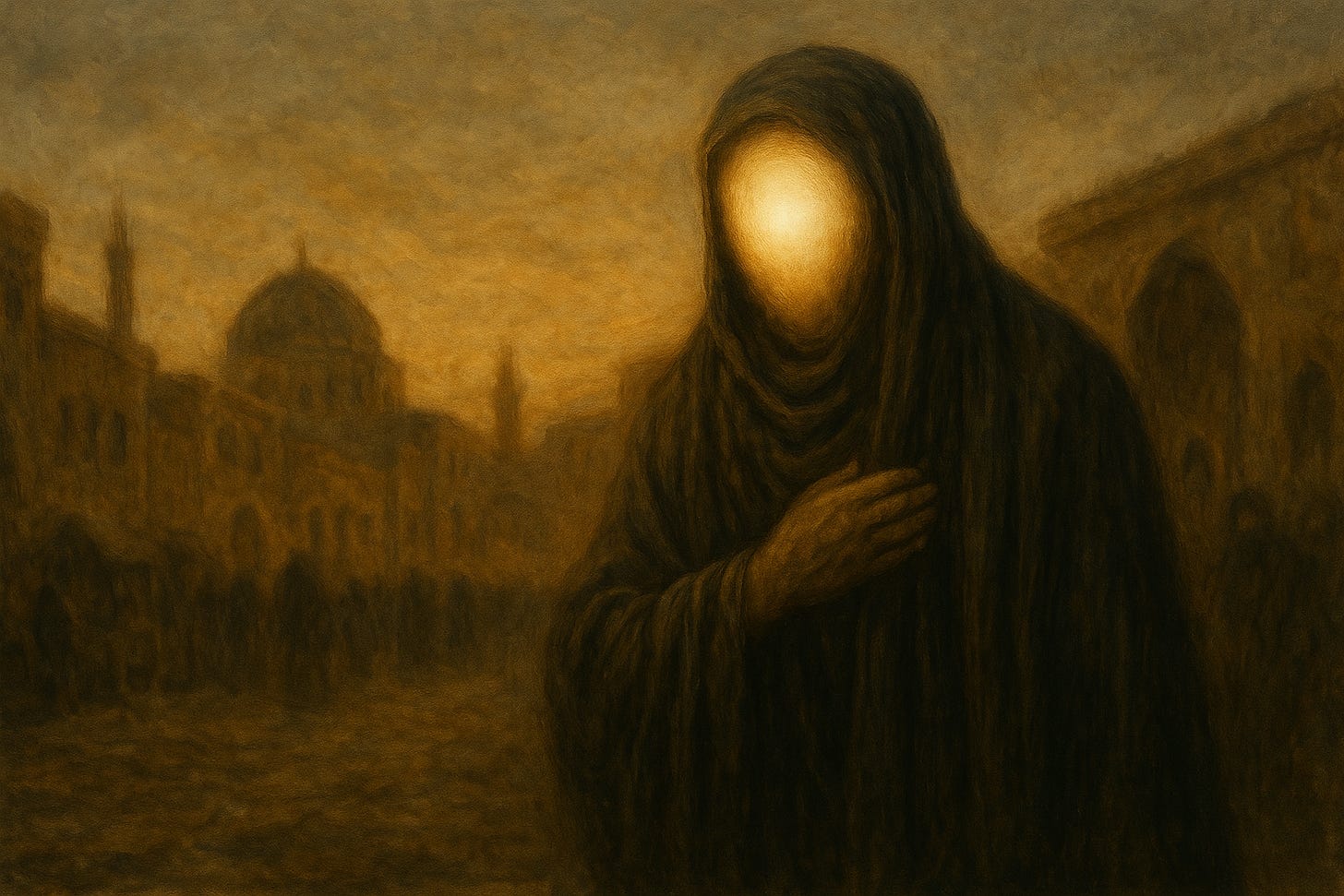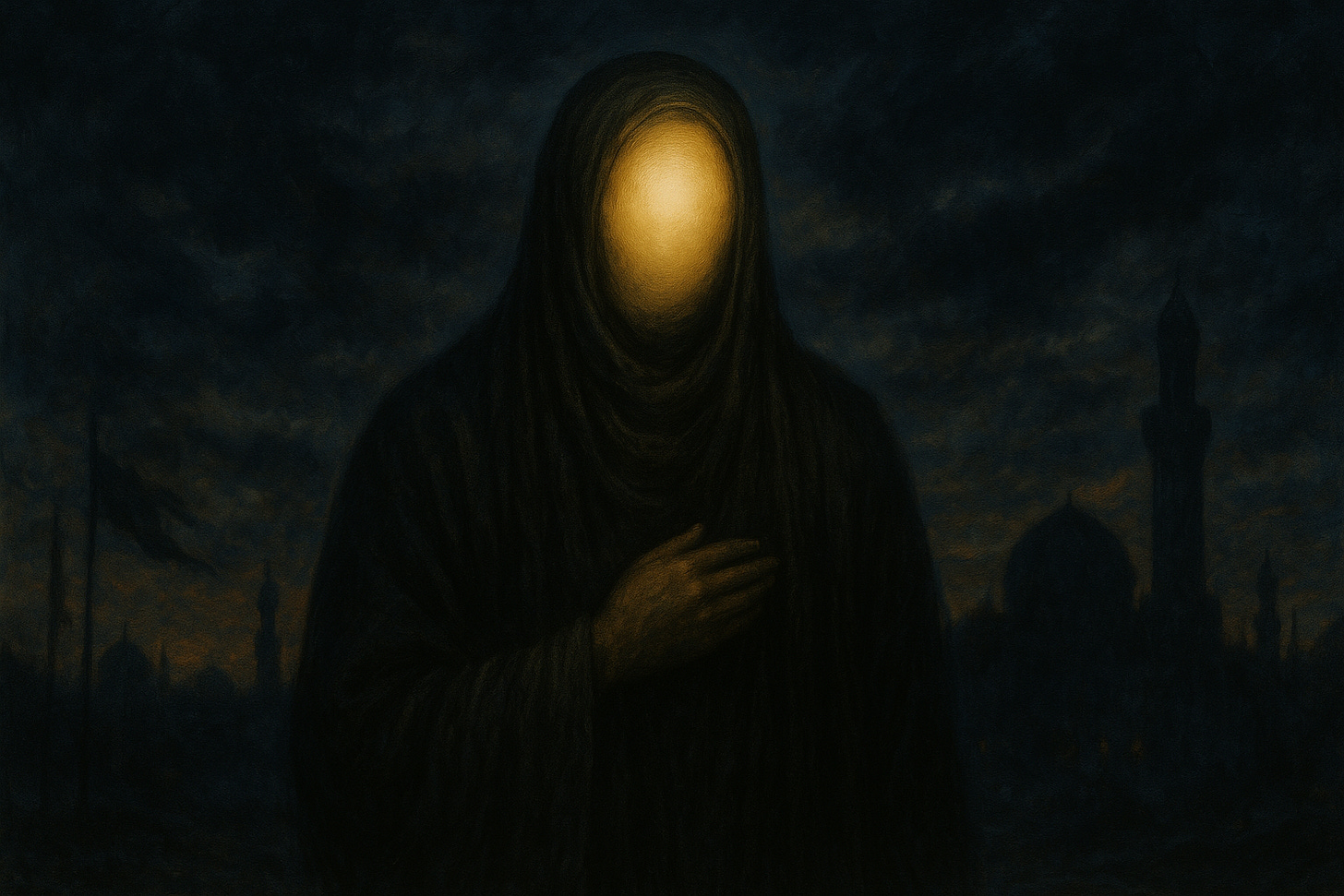[3] Arbaeen Maqtal - The Journey from Kufa to Damascus and Beyond
This is a series of maqatil (martyrdom narratives - devotional recitations recounting the suffering and sacrifice of the Ahl al-Bayt, the family of Prophet Muhammad). These are for Arbaeen 2025/1447
In His Name, the Most High
بِسْمِ ٱللّٰهِ ٱلرَّحْمٰنِ ٱلرَّحِيمِ
ٱلْحَمْدُ لِلّٰهِ رَبِّ ٱلْعَالَمِينَ وَصَلَّى ٱللّٰهُ عَلَىٰ سَيِّدِنَا مُحَمَّدٍ وَعَلَىٰ أَهْلِ بَيْتِهِ ٱلطَّيِّبِينَ ٱلطَّاهِرِينَ ٱلْمَعْصُومِينَ، أَمَّا بَعْدُ
السَّلَامُ عَلَيْكُمْ وَرَحْمَةُ اللَّهِ وَبَرَكَاتُهُIn the name of God, the Most Gracious, the Most Merciful.
All praise is due to God, the Lord of all worlds, and may blessings be upon our Master Muhammad and upon his pure, purified, and infallible household. As for what follows:
Peace be upon you, and the mercy of God, and His blessings.
Video of the Maqtal (Eulogy)
Audio of the Maqtal (Eulogy)
After Karbala: The Captives of Ahlul Bayt
After the tragedy of Karbala, the family of Imam Hussain (peace be upon him) was taken captive. Shackled and weary, the noble women and children, led by Sayyeda Zainab (peace be upon her) and Imam Ali ibn al-Hussain, known as Imam Sajjad (peace be upon him), were paraded through the streets of Kufa. The wounds of Ashura were still fresh, the cries of the orphans still echoing in the desert wind.
The Cruel Journey Begins
From Kufa, the caravan of captives was forced to march towards Damascus, the seat of Yazid’s power. The journey was long and cruel. The children, parched with thirst and weakened by hunger, stumbled along the burning sands. The women, their veils torn and dignity violated, bore the weight of grief and chains. The heads of the martyrs, including that of Imam Hussain, were carried aloft on spears, a sight that seared the hearts of the faithful.
The Martyrdom of Sayyeda Khawla
Along the way, the suffering of the children was unbearable. Some fell from exhaustion, others cried for their fathers who would never return. The captors showed no mercy, prodding them onward with whips and harsh words. It was during this agonising journey that the tender soul of Sayyeda Khawla, a young daughter of Imam Hussain, could no longer bear the hardships. Weakened by thirst, hunger, and the trauma of Karbala, she passed away, her small body succumbing to the cruelty of the oppressors. Her death was another piercing arrow in the hearts of the Ahl al-Bayt, a testament to the immense suffering inflicted upon the innocent. Yet, amidst this darkness, the light of faith and patience shone from the faces of the Ahl al-Bayt.
Resistance of the Tribe of Abul Aswad
As the caravan passed near the lands of the tribe of Abul Aswad, word spread of the plight of the Prophet’s family. The tribe, moved by the injustice, attempted to rise in protest, but the might of Yazid’s army crushed their efforts. Their uprising, though suppressed, became a symbol of resistance and a spark of hope for the oppressed.
The Night of Light: A Christian Monastery Near Aleppo
Days turned into weeks as the caravan neared Damascus. During this arduous journey, near Aleppo, the caravan halted for the night near a Christian monastery. The soldiers, tired from their march, placed the blessed head of Imam Hussain on a stone. In the stillness of the night, a miraculous light emanated from the head, reaching towards the heavens.
The Christian Monk’s Embrace of Truth
The Christian priest, a devout man who had spent his life in worship, witnessed this extraordinary sight. He heard a voice reciting the Qur'an from the head, proclaiming:
"Do you think that the people of the Cave and the Inscription were of Our signs a wonder?" (Qur'an, Surah al-Kahf, Chapter 18, The People of the Cave, Verse 9).
Overwhelmed by this divine manifestation, the priest approached the soldiers, offering a large sum of money to keep the head for one night. He took the sacred head, cleaned it, and placed it on a silken cloth. Throughout the night, he prayed and wept, witnessing further miracles and feeling the profound spiritual presence. By morning, convinced of the truth of Islam and the sanctity of Imam Hussain, he embraced the faith, sacrificing his life shortly thereafter at the hands of the enraged soldiers. This encounter served as a testament to the divine status of Imam Hussain, even in martyrdom.
The Celebration in Damascus
When they reached the outskirts, the family was made to wait outside the city gates. Inside, Yazid had ordered the city to be decorated banners of victory to be raised, and drums of celebration to be beaten. He had declared a day of Eid, a day of joy and festivity, to mark his so-called triumph over the household of the Prophet. The captives, exhausted and humiliated, were forced to witness the jubilation of their enemies.
The Children’s Bewilderment and Sayyeda Zainab’s Comfort
The children, bewildered, asked their mothers why the people rejoiced while they mourned. Sayyeda Zainab, with tears in her eyes, comforted them, her words a balm for their broken hearts.
Imam Sajjad’s Reply to an Ignorant Man
As they entered Damascus, the streets were lined with people, some jeering, others weeping in secret. Among the crowd was an old man who, seeing Imam Sajjad in chains, praised Allah for granting victory to Yazid over his enemies. Imam Sajjad, his face pale with suffering but radiant with dignity, turned to the old man and asked, “O Sheikh, have you read the Qur’an?” The old man replied, “Yes, I have.” Imam Sajjad recited the verse:
Say: I do not ask of you any reward for it but love for my near relative
(Qur’an, Surah ash-Shura, Chapter 42, The Council, Verse 23)
The old man was struck with remorse, realising the truth of the captives’ identity, and wept bitterly for his ignorance.
A Glimmer of Mercy: Hind’s Intervention
In the palace of Yazid, another encounter unfolded. Hind, the wife of Yazid, recognised Sayyeda Zainab. Once her servant in Medina, Hind was overcome with grief and shame at the sight of her former mistress in chains. She rushed to Yazid, pleading for the dignity and release of the women of the Prophet’s household. Her compassion was a rare mercy in a city blinded by celebration.
Return to Medina: A City Drenched in Grief
After months of captivity, the broken caravan was finally released. The family returned to Medina, but the city that once echoed with the laughter of the Prophet’s grandchildren now wept with their sorrow. Imam Sajjad, the lone surviving son of Hussain, entered Medina with a heart heavy heart and filled with grief. Every street, every corner, reminded him of those who had been lost. He would often be seen weeping, his tears flowing whenever he remembered the suffering of his family, especially the horrors of Damascus. When offered food or water, he would recall the thirst of the children in Karbala and the humiliation in Shaam, and his sobs would shake his frail body. The people of Medina would hear his cries in the night, mourning not only for Karbala, but for the long, bitter journey through the darkness of Yazid’s court.
A Witness in Occultation: Imam Mahdi (aj)
Yet, in the unseen world, there is a witness to these sorrows. Imam Mahdi (may Allah hasten his reappearance), the awaited saviour, bears the memory of every tear shed by Imam Sajjad and every word of courage spoken by Sayyeda Zainab. He is the living testament to their struggle, the inheritor of their pain and their hope. Today, as the darkness of oppression once again casts its shadow over Damascus, and the sons of Bani Umayyah seem to re-emerge in new forms, Imam Mahdi sees and grieves. He knows the suffering of the innocent, the betrayal of the just, and the desecration of the sacred. He waits for the day when justice will return, when the blood of Karbala and the tears of Shaam will be avenged, and the world will finally recognise the true station of Ahlul Bayt.
The Eternal Wound and Awaited Justice
Thus, the journey from Kufa to Damascus, and the return to Medina, is not just a story of the past. It is a living wound in the heart of every lover of the Prophet’s family, a call to remember, to mourn, and to stand for justice until the promised day of deliverance.


